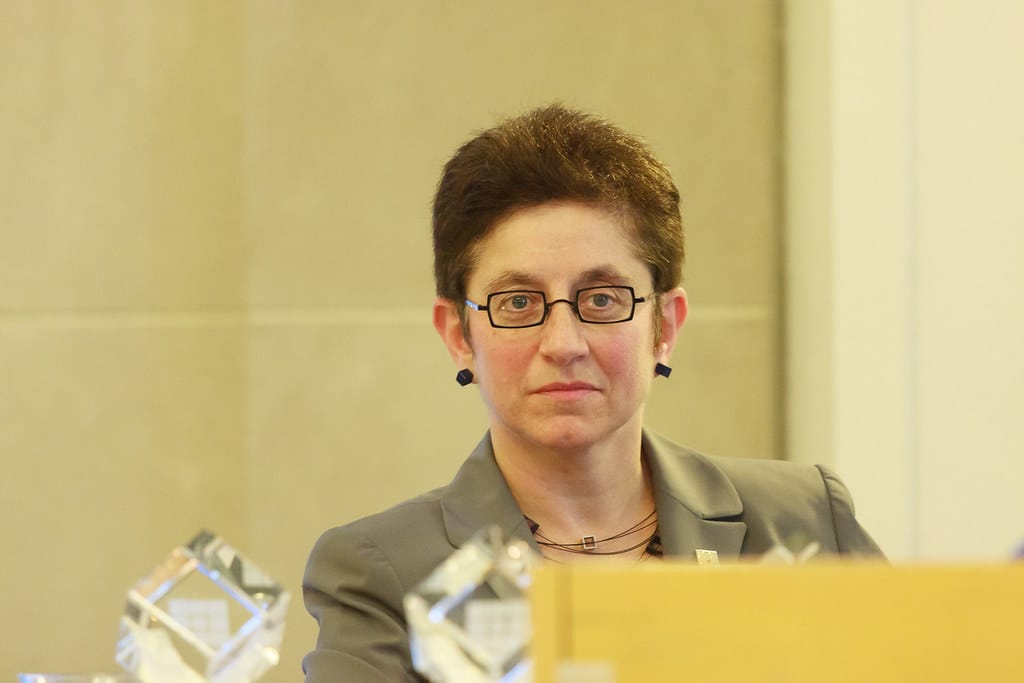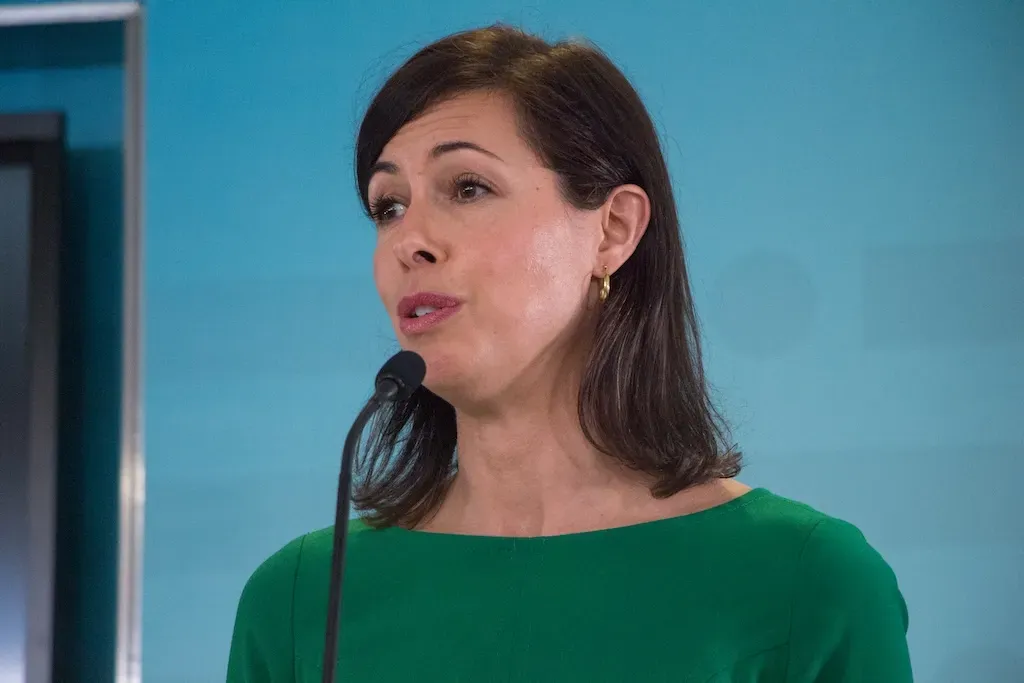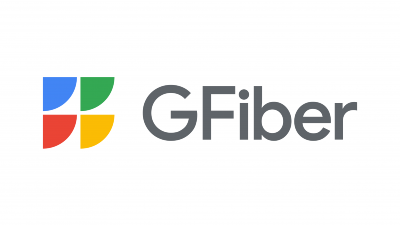Coalition to Reform USF Raises Alarm About FCC Exempting Broadband Providers
Thursday's draft net neutrality order excuses broadband internet service providers from contributions.
Jericho Casper

WASHINGTON, April 5, 2024 – Public interest advocates are criticizing one aspect of the draft net neutrality order released Thursday by the Federal Communications Commission: A provision that would exempt broadband internet access service (BIAS) providers from contributing to the $8.1 billion Universal Service Fund.
Broadband providers currently do not contribute to the USF. Telecommunications companies, on the other hand, do contribute to USF.
That’s because broadband providers are regulated under Title I of the Communications Act, whereas telecoms are regulated under Title II. If the FCC’s net neutrality proposed order were passed, however, broadband providers would also be regulated as telecoms.
But, in “forbearing” from applying USF obligations on broadband companies – once reclassified as telecoms – public interest advocates say FCC Chairwoman Jessica Rosenworcel is closing the door on the best opportunity to subsidize broadband connections for low-income Americans.

Chairwoman has expressed apprehension about price
Rosenworcel has said that she is apprehensive that implementing a new fee on broadband providers could lead to a sudden increase in retail broadband bills, the way that more traditional telecoms typically pass the USF charge to their customers’ monthly phone bills.
“The record does not show that assessing new USF contribution requirements on BIAS service is necessary for the Universal Service Fund to fulfill goals at this time,” states the 434-page FCC draft the Rosenworcel released Thursday. “We conclude that forbearing from imposing new universal service contribution requirements on BIAS service is in the public interest.”
In January, Rosenworcel told Congress that tapping broadband providers for the Universal Service Fund would ultimately increase the burden on consumers, despite making more money available.
 Broadband BreakfastJake Neenan
Broadband BreakfastJake Neenan
Advocates raise concerns
In response to the proposed order, some advocacy groups that were looking to USF reform as the vehicle to fund a permanent replacement for the Affordable Connectivity Program are alarmed. Forbearing would significantly hinder the FCC's flexibility to expand USF contributions to support ACP-like broadband affordability initiatives, they said.
“The USF which pays for, among other things, broadband subsidies for schools, libraries, and rural healthcare providers, is running out of money because only telephone providers pay into the fund,” Gigi Sohn, who was previously nominated to serve as a commissioner of the FCC, but now heads the American Association for Public Broadband and represents the Affordable Broadband Campaign, wrote in a public post.
“The FCC should not forebear,” Sohn told Broadband Breakfast. “Instead, it should conduct another proceeding” to more fully explore how applying USF fees to broadband providers would impact costs.
“Nothing more needs to be done: Do not forbear,” urged Sohn.
Sohn, formerly a counselor to FCC Chairman Tom Wheeler during the second Obama administration, said she regretted that Wheeler similarly forbore from imposing USF contributions on broadband providers in 2015. That was the last time the agency implemented Title II net neutrality rules.
Sohn argued that USF and the necessity of broadband has changed dramatically in nine years: The contribution factor upon telecom companies was 15 percent in 2015, and is creeping up to 40 percent now. INCOMPAS makes these points in a short video.
The contribution factor to the USF represents the percentage of an individual's or entity's revenue that is required to be contributed to the fund. This means consumers and businesses are now paying an additional 30 percent on their telecom bill.
Urging the FCC not to forbear
Sohn, on behalf of the Affordable Broadband Campaign coalition of public interest and some technology and telecom companies, met with FCC staff in March and urged against forbearance.

Attendees included members from the Benton Institute for Broadband & Society, Communications Workers of America, NTCA – The Rural Broadband Association, WTA – Advocate for Rural Broadband, INCOMPAS, Public Knowledge, Common Sense, Open Technology Institute, the National Consumer Law Center, and Greg Guice of the Vernonburg Group, who is counsel to the ABC coalition.
The group argued that the viability of the USF mechanism and the ability for the commission to support broadband affordability in the future could be undermined by not requiring BIAS providers to contribute to the USF fund.
The group said that the FCC adopted the language without opening it to public comment beforehand. They emphasized that the commission has never reversed a decision to forbear in such circumstances.
Economic analyses
According to an economic analysis by the Brattle Group, this contribution number is projected to rise to 44 percent in 2025 and almost 50 percent in 2027 without USF reform.
Considering that telecom revenues are in decline while broadband revenues are on the rise, the report finds that consumers who purchase home phone service are paying a disproportionate share into USF.
The Brattle Group suggests that expanding the contribution base to include revenues from broadband internet access services is the optimal approach for ensuring the long-term sustainability of the USF Fund and fulfilling its objectives.
According to the report's findings, consumers are unlikely to experience a substantial price hike. In fact, many may even enjoy savings due to a considerable reduction in the contribution factor on their phone service. Additionally, the Brattle Report finds businesses will contribute more to the fund compared to residential customers, given that their broadband service entails higher costs.
The commission is expected to vote on the net neutrality draft order at its meeting scheduled for April 25. This order suggests categorizing broadband internet service as a telecommunications service under Title II of the Communications Act of 1934. Consequently, broadband providers would fall under common carrier regulations, which would prohibit actions like blocking, throttling, or implementing paid prioritization.
Drew Clark contributed reporting to this piece.
Clarification: A previous version of this story listed the Vernonburg Group as attending an ABC coalition meeting. In fact, Greg Guice of the Vernonburg Group is counsel to the ABC coalition. Guice is also a board member of the ABC coalition in his personal capacity. The story has been clarified.









